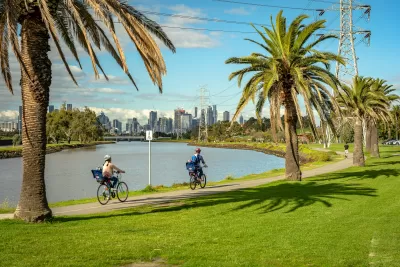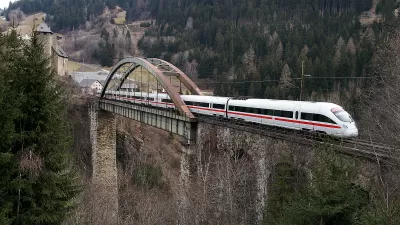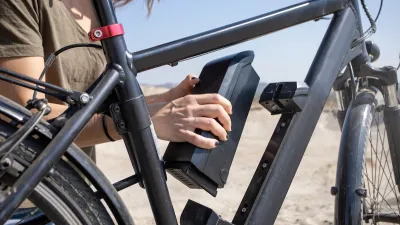The June 2023 issue of World Transport Policy & Practice spotlights livable cities and features articles about three essential components of livable cities: public transit, bicycling, and reducing car use.

The June 2023 issue of World Transport Policy & Practice spotlights livable cities and three essential transportation components: public transit, bicycling, and reducing car use. It first pays homage to the lives and works of Suzanne H. Crowhurst Lennard and Henry L. Lennard, co-founders of the International Making Cities Livable (IMCL) conferences. The next IMCL conference is October 10-13, 2023 in Poundbury and Dorchester, England. Hope to see you there!
In keeping with the livable cities theme, we present three articles on three necessary transportation strategies: reducing car use, public transit, and bicycling. The first article, on reducing car use, is essentially a brief primer to implementing Urban Vehicle Access Regulations (UVAR). This article continues the theme of UVARs presented in last year’s issues 27.1 and 27.2.
The second article focuses on public transit and the steps that cities and other owners of streets and roads can and should take to ensure the best operations of buses and trams which must use streets that are owned by other agencies.
The third featured article is on bicycling. This article, by a young researcher, focuses on how developing countries can embrace bicycling to help their urban areas. The featured case study is Dhaka Bangladesh. The article explores how Dhaka can attract new bicyclists and why it is good for both the city and its residents. In Dhaka, due to its growth in the last few decades, many residents turned to motorized transport and Dhaka was named the “traffic capital of the world”. The author explores how the economic and cultural situation in Dhaka provides great potential for becoming a cycling city like Groningen, Bogotá and Bangkok. The author demonstrates how Dhaka’s mixed-use neighborhoods, dependence on non-motorized modes, relatively low car ownership and rather expensive public transit compared to other megacities all create an opportunity to develop bicycling as a key component of the transport solution.
Lastly we feature the summary report for the North Wale Transport Commission by Prof. John Whitelegg in which he provides examples of “International Best Practice and Innovation in Transport“ that he believes are the most relevant for adoption by North Wales. He provides evidence as to their effectiveness and encourages the Welsh government to emulate these proven policies instead of continuing past reliance on automobile solutions. Prof. Whitelegg’s recommendations for Wales are followed by his reviews of two recently published books: Good to go? Decarbonising travel after the pandemic by David Metz and Transport for Humans: Are we nearly there yet? by Peter Dyson and Rory Sutherland. Prof. Whitelegg states that both are recommended reading but he adds that they both could have done a whole lot more to help move the needle towards sustainable transport. As an American, I am not sure if I am comforted or depressed by reading Whitelegg’s conclusion in the review of Metz’s book that the United Kingdom (also) is “so very bad at doing the right things and so very good at making things worse.”
In either case, the need for sharing good policies and practices is still very much in evidence not only on both sides of the Atlantic but in the developing world as well. This makes the case for the continued relevance of World Transport Policy & Practice. We invite you to both check out issue 28.1 and to consider submitting your own stories of practices and policies that have moved your community to implement—and embrace—sustainable transportation. In addition, we are always looking to promote insightful books and useful resources, so we are seeking pertinent book reviews, and announcements of new plans and guidelines that shift the focus from car-oriented transportation to modes that support livable cities. Though the journal is free, there are, of course, expenses incurred to ensure a high quality, graphically engaging journal on an open platform; we rely on contributions from generous donors, and welcome all who can to contribute. Our supporters enable us to continue our 26+ year tradition as a freely accessible journal of practical ideas and examples for building communities based on sustainable transportation.

Study: Maui’s Plan to Convert Vacation Rentals to Long-Term Housing Could Cause Nearly $1 Billion Economic Loss
The plan would reduce visitor accommodation by 25,% resulting in 1,900 jobs lost.

North Texas Transit Leaders Tout Benefits of TOD for Growing Region
At a summit focused on transit-oriented development, policymakers discussed how North Texas’ expanded light rail system can serve as a tool for economic growth.

Using Old Oil and Gas Wells for Green Energy Storage
Penn State researchers have found that repurposing abandoned oil and gas wells for geothermal-assisted compressed-air energy storage can boost efficiency, reduce environmental risks, and support clean energy and job transitions.

Private Donations Propel Early Restoration of Palisades Playground
Los Angeles has secured over $1.3 million in private funding to restore the Pacific Palisades playground months ahead of schedule, creating a modern, accessible space that supports community healing after recent wildfires.

From Blight to Benefit: Early Results From California’s Equitable Cleanup Program
The Equitable Community Revitalization Grant (ECRG) program is reshaping brownfield redevelopment by prioritizing projects in low-income and environmental justice communities, emphasizing equity, transparency, and community benefits.

Planting Relief: Tackling Las Vegas Heat One Tree at a Time
Nevada Plants, a Las Vegas-based nonprofit, is combating the city’s extreme urban heat by giving away trees to residents in underserved neighborhoods, promoting shade, sustainability, and community health.
Urban Design for Planners 1: Software Tools
This six-course series explores essential urban design concepts using open source software and equips planners with the tools they need to participate fully in the urban design process.
Planning for Universal Design
Learn the tools for implementing Universal Design in planning regulations.
Ascent Environmental
Borough of Carlisle
Institute for Housing and Urban Development Studies (IHS)
City of Grandview
Harvard GSD Executive Education
Toledo-Lucas County Plan Commissions
Salt Lake City
NYU Wagner Graduate School of Public Service






























